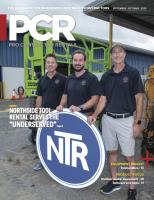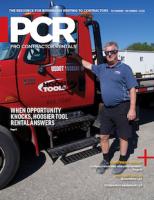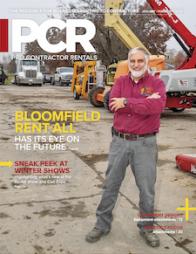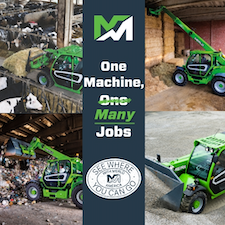Second-generation autonomous equipment introduced
John Deere reveals new autonomous machines and technology for agriculture, construction, and commercial landscaping.
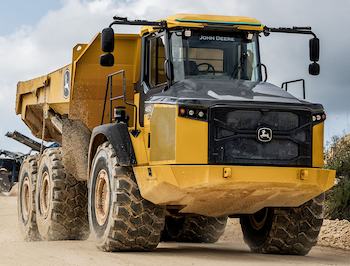 |
| The John Deere 460 P-tier autonomous articulated dump truck (ADT) for quarry operations is one of four autonomous models introduced at CES 2025. |
The new autonomous machines were introduced during a press conference at CES 2025. Building on Deere’s autonomous technology first revealed at CES 2022, the company’s second-generation autonomy models combine advanced computer vision, AI and cameras to help the machines navigate their environments.
While each of these industries experiences their own set of challenges, a commonality across all is skilled labor availability.
- Agriculture: the American Farm Bureau Federation also estimates there are roughly 2.4 million farm jobs that need to be filled annually.
- Construction: Eighty-eight percent of contractors struggle to find skilled labor.
- Commercial landscaping: 86 percent of landscaping business owners can’t find labor to fill open positions.
“Our agriculture, construction, and commercial landscaping customers all have work that must get done at certain times of the day and year, yet there is not enough available and skilled labor to do the work,” says Jahmy Hindman, chief technology officer at John Deere. “Autonomy can help address this challenge. That’s why we’re extending our technology stack to enable more machines to operate safely and autonomously in unique and complex environments. This will not only benefit our customers, but all of us who rely on them to provide the food, fuel, fiber, infrastructure and landscaping care that we depend on every day.”
Autonomy expanding to more machines
- Autonomous 9RX tractor for large-scale agriculture: Tillage is one of the busiest times of the year for farmers. With the second-generation autonomy kit, featuring 16 individual cameras arranged in pods to enable a 360-degree view of the field, farmers can step away from the machine and focus their time on other important jobs. The advanced autonomy kit also calculates depth more accurately at larger distances, allowing the tractor to pull more equipment and drive faster.
- Autonomous 5ML orchard tractor for air blast spraying: Protecting crops through air blast spraying is a challenging and repetitive job. Featuring the latest autonomy kit with added Lidar sensors to address the dense canopies found in orchards, the initial machine will be offered with a diesel engine. A battery electric tractor of comparable size and capacity to existing diesel 5M/ML models on the market today will follow.
- 460 P-tier autonomous articulated dump truck (ADT) for quarry operations: Quarries supply the essential raw materials vital for building roads, buildings, and infrastructure, and it’s a complex process to mine, process and transport materials. Using the second-generation autonomous sensors, the ADT will handle the repetitive tasks of transporting material around the quarry to facilitate different steps in the cycle.
- Autonomous battery electric mower for commercial landscaping: Commercial landscaping is a highly competitive industry and having the staff to support different bids is essential. The autonomous commercial mower leverages the same camera technology as other Deere autonomous machines, but on a reduced scale since the machine has a smaller footprint. With two cameras on the front, left, right, and rear, 360-degree coverage is achieved and staff can focus on other aspects of the job.
Select machines will be autonomy-ready from the factory and the second-generation perception system will be available as a retrofit kit for certain existing machines, providing customers with multiple paths to adoption based on where they are in their technology journey.
The machines are managed via John Deere Operations Center Mobile, the company’s cloud-based platform. By swiping left to right to start, the machine can be started once placed in the appropriate spot. Through the app, users also have access to live video, images, data and metrics, and the ability to adjust various factors such as speed. In the event of any job quality anomalies or machine health issues, users will be notified remotely so they can make necessary adjustments.






